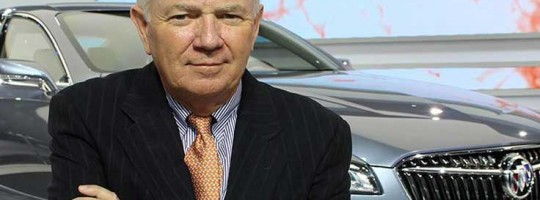Extreme Ownership: Former Navy SEAL Officers Share Leadership Tips For Dealers
Jocko Willink and Leif Babin served our nation in the U.S military as Navy SEAL Officers during the height of the war in Iraq. The two veterans spoke to dealers at DSES 2015 to provide leadership strategies that have been proven during intense, life or death, circumstances. Jocko and Leif provided leadership and human capital tips learned on the battlefield that will translate to your dealership.
Certainly leaders in retail automotive want to learn how to improve their leadership skills. However, as Jocko and Leif explain, the first step to improving leadership of a team is taking ownership of everything you do.
As Jocko explained, “That means taking responsibility of everything in your world and not putting any limitations on that. Not making excuses, not looking for other people to blame when something goes wrong – you take responsibility of that and ownership of it. Leif echoed Jocko’s point saying, “Certainly in the auto industry, if you can get your team to exercise extreme ownership at every level, you’ll have the absolutely most dominant team and crush everyone else and that’s the goal.”
The leader of a dealership or dealer group understanding the importance of owning the mission and direction of their organization doesn’t suffice – extreme ownership goes up and down the chain of command.
“When we talk about leadership, we’re not just talking about senior leadership or the executive leadership, or in our case the generals and the admirals, we’re talking about leadership throughout the chain of command,” Jocko said.” So your frontline troops they’re looking at what they can do to make their job better. They’re taking ownership of their little piece of the mission. And at the top and all the way through, people are looking at their piece of the mission, how they can execute it and how they can take responsibility and ownership for it.”
Part of having everyone in the chain of command buy into the mission is to have them understand the “why” of the mission. If dealership staff don’t understand the “why” behind the dealership’s mission and direction, it will be more difficult to reach your goals.
Noting the importance of not simply barking orders at someone Babin said, “You got people that are thinking human beings and they have to be led and you have to help them believe in the mission, understand why they are doing what they’re being asked to do. Helping people understand the bigger strategic mission of what we’re trying to accomplish, the “why,” then they can believe in it and go out and execute.”
As Babin explained, leadership in retail automotive or in a combat setting has the same essential goal.
“How do combat principles apply to the auto industry, or any industry in the business world?” Babin asked. “It’s simply about getting a group of diverse people to work together as a team in order to accomplish a mission, a complex mission with strategic goals. It’s the same thing.”
One of the unique parts of leadership according to Jocko is the necessity for employees to be leaders in their relationships with their managers.
“I’m going to lead my boss even though they’re in charge of me,” Jocko said. “Well, how does that work? It’s actually pretty simple. If I’m not getting the support that I need from my boss, who’s fault is it? Is it my boss’s fault, not it’s not my bosses fault. It’s my fault. That means that I didn’t give my boss the education that they need. I didn’t give my boss the information that they need to make a good decision. I didn’t give my boss the information. I didn’t influence them. I failed. My boss wants me to win. Whether I’m in combat or whether I’m in business. If I’m in combat they want me to win the battle. If I’m in business they want me to make more money. My boss is aligned with what I want to do.”
Finally, no strategy, no matter how well intentioned will take hold at a dealership unless there is belief.
On the subject of belief Leif noted, “In order to lead the team, whether it’s up or down the chain of command and preserve through those challenges, you’re going to have to believe. So, you gotta believe yourself, so you can convince others to believe. If you do that you understand why it’s important, why it’s critical. You convince them to do that, that’s the way to build an effective team that wins. And dominates.”
What components of leadership strategy do you find yourself wanting to improve upon in your store or group? How do you think you can take the principle of “extreme ownership” and apply it management and staff in retail automotive?












Warning: count(): Parameter must be an array or an object that implements Countable in /home/pg4b1yzvrqqo/domains/test.drivingsalesnews.com/html/wp-includes/class-wp-comment-query.php on line 399